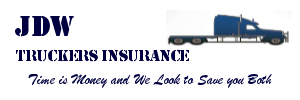insurance for small trucking companies
Introduction
Owner operators play a vital role in the commercial trucking industry. These hardworking individuals are not only responsible for driving their trucks, but also for managing the business side of their operations. One crucial aspect of being an owner operator is securing the right insurance to protect themselves, their assets, and the cargo they transport. In this article, we will explore the importance of insurance for small trucking companies and the key factors to consider when choosing the right coverage.
The Need for insurance for small trucking companies
Operating a commercial trucking business comes with inherent risks, and the consequences of unfortunate incidents can be financially devastating. Accidents, theft, damage to the truck or cargo, and liability claims are just some of the risks owner operators face on a daily basis. Having the right insurance coverage is essential to mitigate these risks and safeguard the owner operator’s livelihood.
Understanding the Coverage
insurance for small trucking companies typically includes several types of coverage to provide comprehensive protection. These may include:
1. Liability Coverage: This coverage is crucial as it protects against any claims resulting from bodily injury or property damage caused by the owner operator’s truck. It covers legal costs, medical expenses, property repairs, and any judgments or settlements awarded in a lawsuit.
2. Physical Damage Coverage: This coverage protects the owner operator’s truck from damage caused by accidents, theft, vandalism, fire, or natural disasters. It typically includes collision coverage for accidents involving other vehicles, as well as comprehensive coverage for non-collision incidents.
3. Cargo Insurance: Cargo insurance provides coverage for the goods being transported by the owner operator. It protects against damage, loss, or theft of the cargo during transit.
4. Uninsured/Underinsured Motorist Coverage: This coverage protects the owner operator if involved in an accident with a driver who lacks sufficient insurance or no insurance at all. It ensures that the owner operator is not left bearing the financial burden in such cases.
Factors to Consider when Choosing Coverage
Selecting the right insurance coverage for owner operators requires careful consideration of several factors. Here are some key aspects to keep in mind:
1. Coverage Limits: It is important to assess the amount of coverage needed based on the type of cargo, the value of the truck, and the potential risks involved. Underinsuring can leave the owner operator vulnerable, whereas overinsuring can lead to unnecessary expenses.
2. Deductibles: Consider the deductibles associated with each coverage type. A higher deductible might result in lower premium costs, but the owner operator should ensure they can comfortably afford the deductible in case of a claim.
3. Insurance Provider: Look for reputable insurance providers that specialize in commercial trucking insurance. Research their financial stability, claims handling process, and customer reviews to ensure reliability and efficient support.
4. Additional Coverage: Depending on the owner operator’s unique circumstances, additional coverage options may be beneficial. These can include rental reimbursement, medical payments coverage, or coverage for attached equipment.
insurance for small trucking companies Conclusion
Owner operators in the commercial trucking industry need comprehensive insurance coverage to protect their business and assets. With the right insurance policy in place, owner operators can have peace of mind knowing that they are adequately protected against potential risks. By considering factors such as coverage limits, deductibles, and the reputation of insurance providers, owner operators can make informed decisions that align with their specific needs. Prioritizing insurance for small trucking companies is a wise investment that safeguards both the owner operator and the future of their business.
insurance for small trucking companies.

